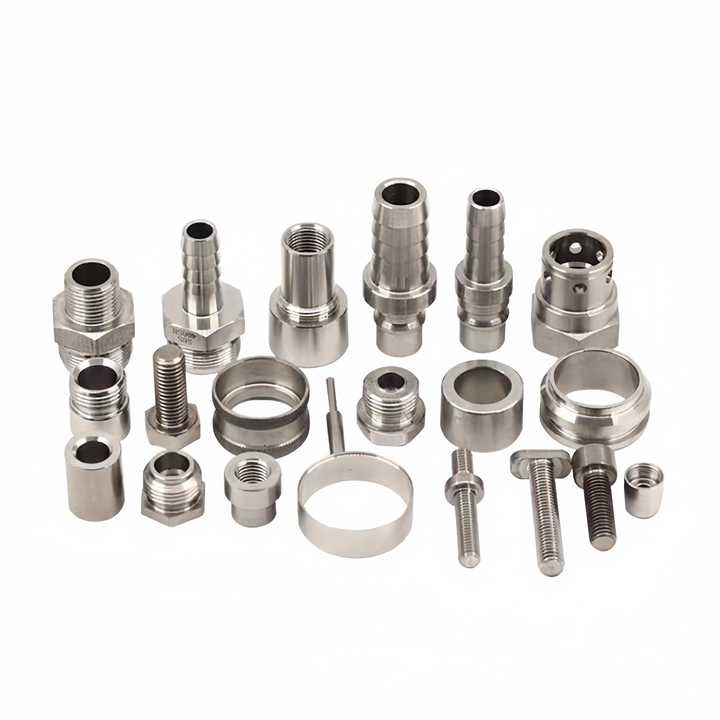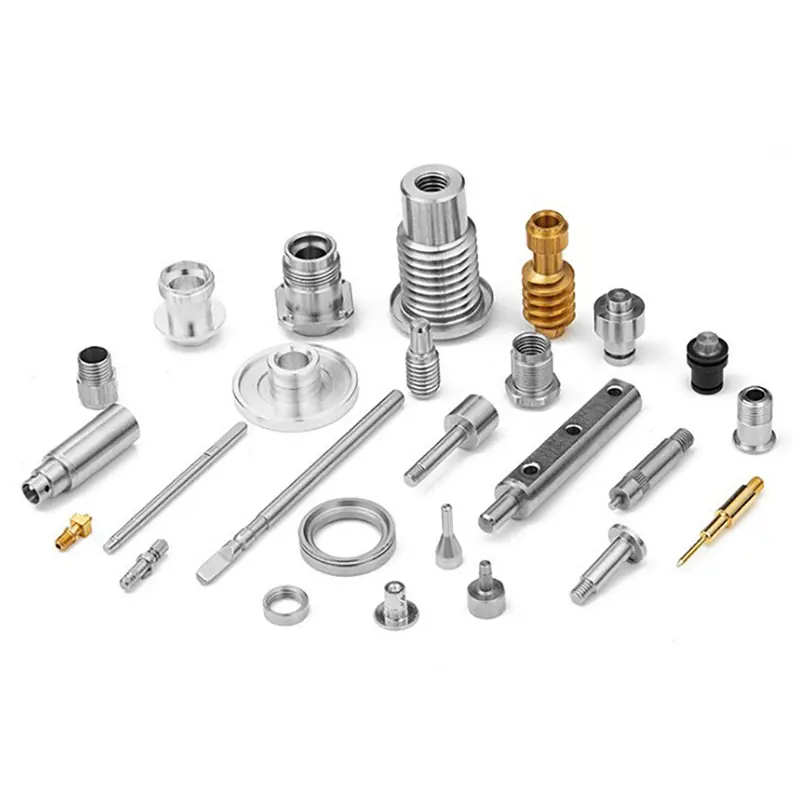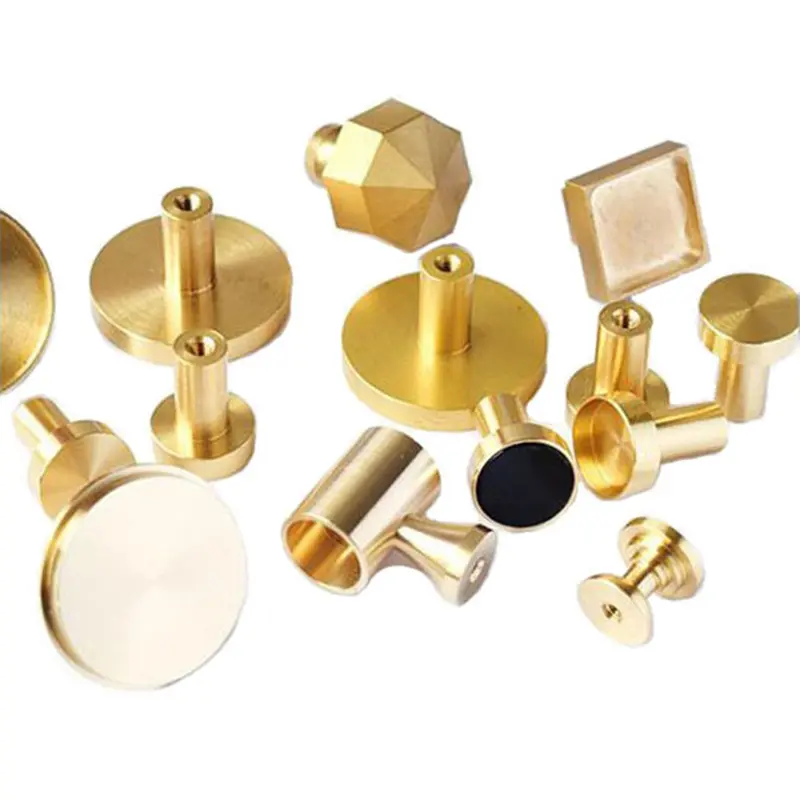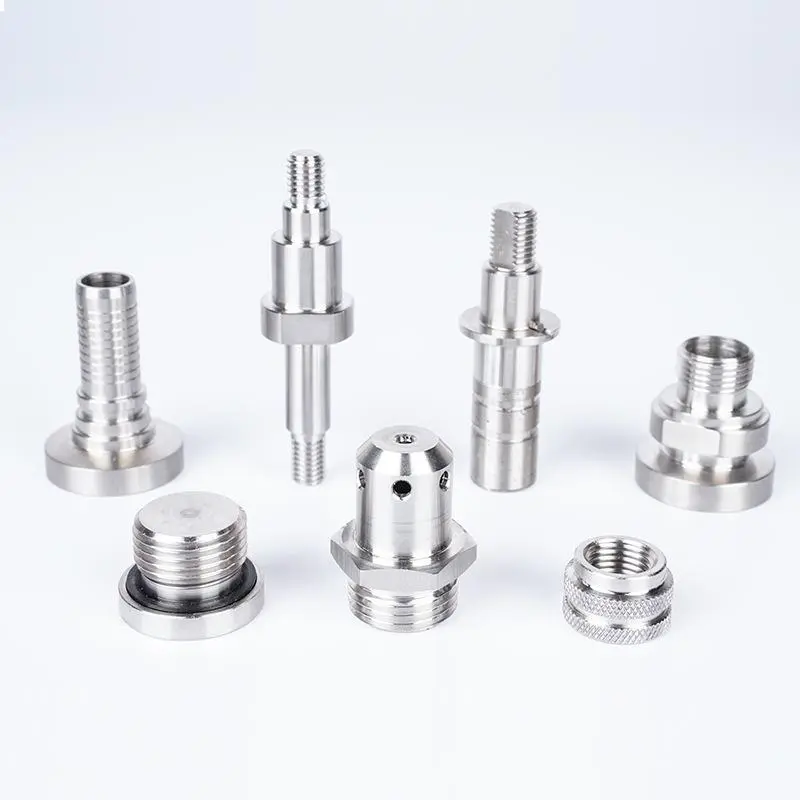Plastic Machined Parts – Precision Components for Versatile Industrial Applications
Published Time:
2025-11-20
Plastic machined parts are high-precision components manufactured from a wide range of engineering plastics using CNC machining and other precision fabrication techniques. These parts are widely used in industries such as medical devices, electronics, automotive, aerospace, consumer products, and industrial machinery, where accuracy, lightweight properties, chemical resistance, and durability are critical. By machining plastics, manufacturers can create complex geometries, tight tolerances, smooth surfaces, and custom features that are difficult or impossible to achieve through molding or extrusion alone.
The process of producing plastic machined parts typically begins with selecting the appropriate material. Commonly used plastics include acrylic (PMMA), polycarbonate (PC), polypropylene (PP), polyethylene (PE), nylon (PA), PEEK, and acetal (Delrin), each chosen based on specific properties such as strength, flexibility, chemical resistance, thermal stability, and biocompatibility. Once the material is selected, CNC machining, turning, milling, drilling, and routing are employed to shape the raw plastic stock into precise components. These processes ensure high dimensional accuracy, repeatability, and superior surface finish, which are essential for functional and aesthetic requirements.
CNC machining of plastics provides numerous advantages over other fabrication methods. First, it allows for tight tolerances and consistent accuracy, which is crucial for components that must fit precisely within assemblies or interface with metal parts. Second, it enables the creation of complex shapes, intricate details, and internal geometries that are challenging to produce through injection molding or casting. Third, CNC machining offers flexibility in production, making it suitable for both prototyping and small- to medium-volume production runs. Adjustments can be made quickly without the need for costly molds or tooling changes, which accelerates product development and reduces lead times.
The versatility of plastic machined parts also lies in the variety of finishes and post-processing options available. Machined plastics can be polished, engraved, laser-etched, anodized (for coated plastics), or painted to meet aesthetic and functional requirements. Threads, holes, grooves, slots, and complex contours can be precisely cut into the parts, allowing them to be integrated seamlessly into assemblies or mechanical systems. Advanced CNC machines with multi-axis capabilities can handle intricate designs, including undercuts, curved surfaces, and detailed patterns, ensuring that each part meets stringent specifications.
Plastic machined parts offer several functional advantages that make them highly desirable in engineering applications. They are lightweight compared to metal counterparts, reducing the overall weight of assemblies and improving energy efficiency in automotive, aerospace, and robotics applications. Many plastics are chemically resistant, enabling components to withstand exposure to oils, acids, bases, and solvents without degradation. They also provide excellent electrical insulation properties, making them suitable for electronic housings, circuit boards, and other electrical components. Additionally, certain plastics, such as PEEK and PTFE, exhibit high thermal stability and wear resistance, allowing them to perform reliably under demanding operating conditions.
Another critical benefit of plastic machined parts is cost-effectiveness for specific production volumes. While injection molding is suitable for high-volume production, CNC machining allows manufacturers to produce small batches or custom parts without the expense of molds. This is particularly valuable for prototyping, pilot production runs, or specialized components that require unique material properties or custom geometries. Machined plastic parts also reduce waste, as excess material can often be recycled or reused, contributing to sustainability and lower material costs.
Plastic machined parts are extensively applied across multiple industries. In the medical field, they are used to create surgical instruments, lab equipment, prosthetics, and medical device housings, where precision, biocompatibility, and sterilizability are essential. In electronics, machined plastics form connectors, insulators, housings, and precision mounts that protect delicate components while maintaining dimensional accuracy. Automotive applications include lightweight brackets, clips, and components within fuel systems, sensors, and interior assemblies. In aerospace, machined plastics are used in lightweight structural parts, instrument panels, and insulation components. Industrial machinery relies on plastic machined parts for bushings, gears, spacers, and wear-resistant components. Consumer products also benefit from custom-machined plastics, including sporting equipment, appliances, and decorative elements.
The production process of plastic machined parts emphasizes precision and quality control. Advanced CNC machines employ high-speed spindles, precision tooling, and computer-controlled cutting paths to ensure consistent results. Tool wear, feed rates, and cutting speeds are carefully monitored to prevent melting, chipping, or deformation of the plastic material. Tolerances can often be maintained within ±0.01 mm or better, depending on the material and design requirements. By combining precision machinery with skilled programming and quality inspection, manufacturers ensure that each plastic machined part meets or exceeds customer specifications.
Sustainability and material efficiency are also important considerations in plastic machining. Many plastics used for machining can be recycled, and CNC processes allow for efficient use of raw materials, minimizing scrap. Machining techniques can also be optimized to reduce energy consumption and improve production efficiency. As industries increasingly focus on sustainability and environmental responsibility, plastic machined parts offer a balance of high performance, low weight, and material efficiency that aligns with modern manufacturing goals.
In summary, plastic machined parts are versatile, high-precision components that combine the advantages of plastic materials with the accuracy and repeatability of CNC machining. They allow manufacturers to create complex geometries, tight tolerances, and functional features across a wide range of industries. With benefits including lightweight construction, chemical resistance, electrical insulation, thermal stability, and design flexibility, plastic machined parts are ideal for applications in medical devices, electronics, automotive, aerospace, industrial machinery, and consumer products. CNC machining of plastics provides an efficient, cost-effective, and reliable solution for both prototyping and production, making it an essential technology in modern manufacturing.
NewsCenter
Beijing Pafinal Precision Machinery Co., Ltd.
Email:sales@pafinal.com

Address: No. 239 Huanhe South Road, Tianjin Pilot Free Trade Zone (Airport Economic Zone), Tianjin
sales@pafinal.com:
Whatsapp:
在线客服添加返回顶部
图片alt标题设置: PAFINAL
表单验证提示文本: Content cannot be empty!
循环体没有内容时: Sorry,no matching items were found.
CSS / JS 文件放置地




 2026-01-10
2026-01-10


